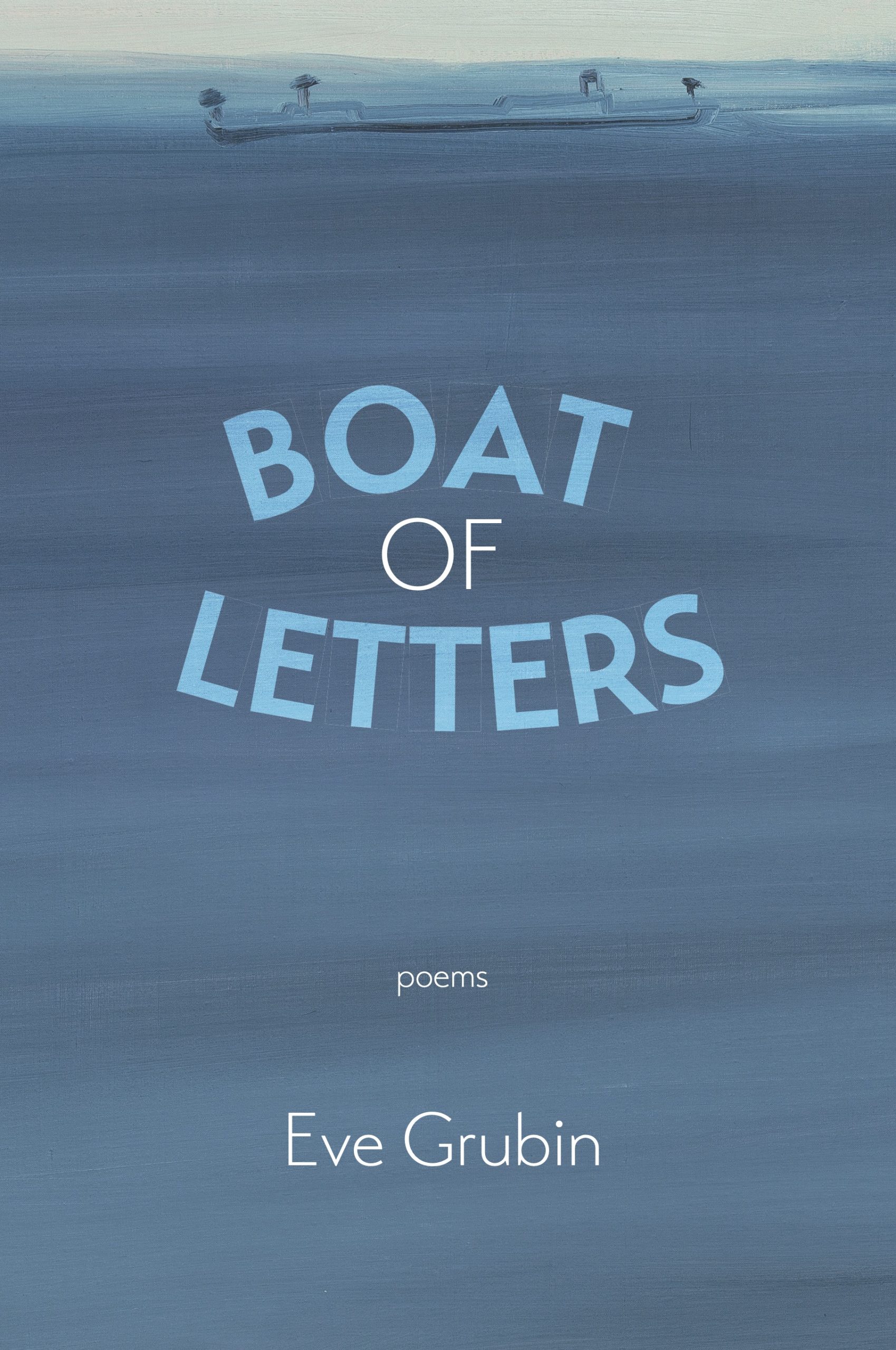
paper • 112 pages • 17.95
ISBN: 978-1-961897-64-9
eISBN: 978-1-961897-65-6
September 2025 • Poetry
In her much anticipated second full-length collection of poems, Eve Grubin conjures an “inky swamp, wild and warm, / where leaves hang down like muted lamps.” Grubin navigates wild waters in a “boat of letters” she constructs, with poems narrating a daughter in mourning for her mother in adulthood’s half-light; a wife in the middle of life’s existential marathon; a mother raising two children in the terrifying present; an American living in London; a Jewish woman following religious tradition in what can feel like a faithless world. Grubin shapes language and silences into a bridge that holds us between longing and understanding, between effort and the holy ground of that unattainable destination. “The Poetics of Reticence” describes hovering above the waters where “there is no vessel; there are no oars,” just the “sounds of a boat creaking,” a material contradiction in the hushed void. “Silence is praise: words cannot touch glory,” Grubin writes, but she also demonstrates what wonders our speech makes possible. In one poem, the narrator looks back at her wedding and considers how little she knew about marriage, and thinking in the context of her husband’s area of expertise, palaeography, she reflects, “I didn’t know that when two graphemes join / in a single glyph there is potential for stylistic re-imaginings, / for inventive, elegant variations.” All is preordained, she seems to say, while paradoxically, we re-imagine and invent. And even as we create our future, we embrace the beauty of what we cannot know: “Yesterday, we talked about the shade / of a certain blue mentioned in the Torah. / Was it the blue of our son’s lips after a bath? // Or the blue of redemption? // Or the dark blue of the sky / the night we walked across the sands, the seas all around us.”
Poetics of Reticence
There is no vessel; there are no oars.
Silence is praise: words cannot touch glory.
She moves him with emptiness
between fingers.
No sounds of a boat creaking.
The night listens.
Empty waters.
Stillness in the dark’s keep.
“Not by force, not by might, but by my spirit.”
No stars, no wind.
The dark is clean, unspeaking.
Nothing seen.
One of Eve Grubin’s poems is titled, “The Poetics of Reticence.” And this reticence is what she works within poem after poem, less being much more than we think as we enter these small, off -tilt worlds she builds with words, few being many, being more than enough for the glimmer of a mother no longer here, a husband and wife arguing about nothing, the Torah hovering over them, learning from the questions. “Reticence,” she writes, “all around us. Night, breath, thorn.”
Eve Grubin seeks wisdom in the ancient Jewish texts as she navigates life as an American in England, a woman caught in the middle of life—a grieving daughter who has lost her mother, a wife and mother of two sons, a worrier, a reader, a dreamer drinking up the quirks of language. Above all, she is a contemporary seeker, and Boat of Letters is a marvelous book of observations, invocations, and prayers.
What is unusual in Morning Prayer, and masterful, is Eve Grubin’s ability to hint at a story undisclosed, creating a poetic palimpsest of mystery and revelation. Her interest is in the moments before and after events, in what is known “just before knowledge.” With spiritual and artistic discipline she remains within the province of the poem, leading us not through events but through the more treacherous and radiant territory of her response to them.